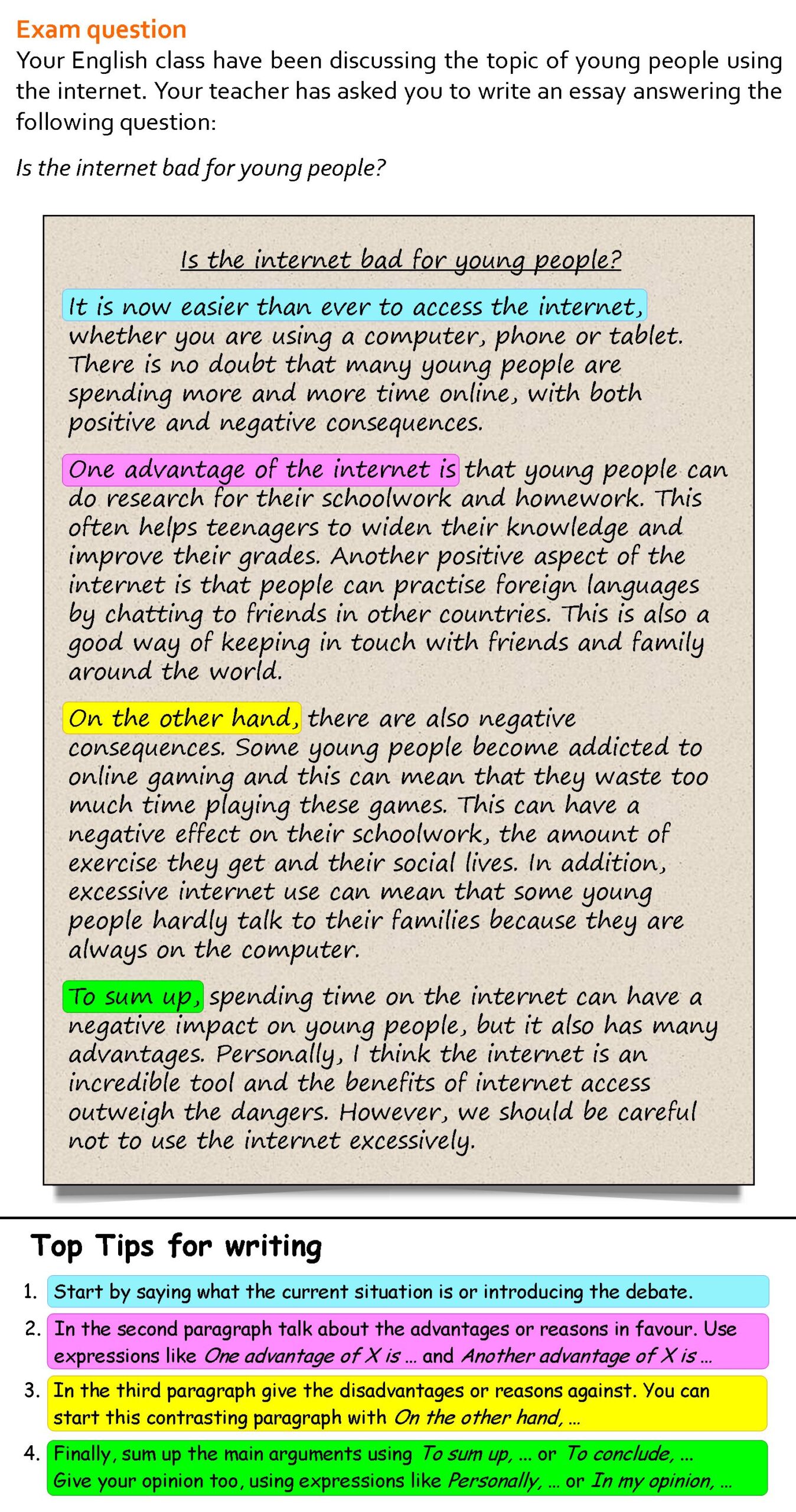Internet composition refers to the visual layout and structure of a website’s elements. It involves the arrangement of text, images, and other design features on a webpage.
Creating an effective internet composition is crucial for enhancing user experience and driving engagement. When done correctly, it can help convey your brand’s messaging effectively, improve navigation, and encourage visitors to take desired actions. A well-thought-out internet composition can also impact SEO by making it easier for search engines to assess and rank your website.
In this digital age, where online presence is paramount, mastering internet composition is a valuable skill for businesses and individuals looking to succeed in the competitive online landscape.

Credit: www.researchgate.net
The Basics Of The Internet
The Internet has revolutionized the way we communicate, work, and access information. Understanding the fundamentals of the Internet is crucial in navigating the digital world effectively.
History Of The Internet
The Internet originated as a military project in the late 1960s, evolving into a global network by the 1990s. Today, it connects billions of devices worldwide.
Key Components Of The Internet
- Servers: Store and manage data, powering websites and services.
- Routers: Direct data packets across networks to reach their destination.
- IP Addresses: Unique identifiers assigned to devices on the Internet.
- Domain Name System (DNS): Translates domain names to IP addresses for browsing.
- Protocols: Rules governing data transmission and communication on the Internet.
Understanding the history and key components of the Internet provides a foundation for exploring its vast capabilities and potential.

Credit: www.researchgate.net
Understanding Internet Infrastructure
Physical Infrastructure
The physical infrastructure of the Internet consists of the hardware components and physical connections that enable the functioning of the network.
Domain Name System (dns)
The Domain Name System (DNS) is like the phonebook of the Internet, translating domain names into IP addresses.
Network Protocols
Network protocols are the set of rules that govern the exchange of data between devices on a network, ensuring seamless communication.
The Role Of Internet Service Providers (isps)
Internet Service Providers (ISPs) play a paramount role in delivering internet access to users. They act as intermediaries between consumers and the vast network of interconnected devices, ensuring seamless and reliable connectivity. Understanding the different types of ISPs, how they operate, and the services they offer is crucial in comprehending the intricate web of internet composition.
Types Of Isps
There are various types of Internet Service Providers catering to diverse consumer needs. Some of the prevalent categories include:
- Local ISPs: These ISPs serve specific geographic areas, offering internet services to local residents and businesses.
- Wireless ISPs: These providers deliver internet connectivity through wireless technology, bypassing the need for physical cable connections.
- Virtual ISPs: Virtual ISPs typically lease network infrastructure from larger ISPs and resell internet services under their own brand.
Isp Operations And Services
ISPs perform a range of essential operations to ensure the efficient delivery of internet services. Some of the key operations and services include:
- Data Transmission: ISPs transmit data packets between devices, facilitating the exchange of information across the internet.
- Network Management: These providers oversee network infrastructure, ensuring optimal performance and addressing technical issues promptly.
- Customer Support: ISPs offer customer service and technical support to address user inquiries and resolve connectivity issues.

Credit: www.vectorstock.com
Exploring Internet Security
With the increasing reliance on the internet, exploring internet security has become crucial. Understanding the composition of the internet is essential for safeguarding sensitive data and protecting against cyber threats.
Cyber Threats
When it comes to internet security, understanding the various cyber threats is crucial. Cyber threats are malicious activities conducted by cybercriminals to exploit vulnerabilities in internet-connected devices and networks. These threats can range from common malware infections to sophisticated hacking attempts. It’s important to be aware of the different types of cyber threats to better protect yourself and your online presence.
Here are some common cyber threats to watch out for:
- Malware: Malicious software designed to damage or gain unauthorized access to your computer or network.
- Phishing: Attempting to acquire sensitive information, such as passwords or credit card details, by disguising as a trustworthy entity.
- Ransomware: A type of malware that encrypts your files and demands a ransom to unlock them.
- Distributed Denial of Service (DDoS) attacks: Overwhelming a targeted website or network with a flood of internet traffic, causing it to become inaccessible.
- Identity theft: Stealing personal information, such as social security numbers or bank account details, to commit fraud or other malicious activities.
Security Measures And Best Practices
Protecting yourself against cyber threats requires implementing effective security measures and following best practices. By doing so, you can significantly reduce the risk of falling victim to online attacks. Here are some essential security measures and best practices to keep in mind:
- Use strong, unique passwords: Create passwords that are at least 15 characters long, consisting of a combination of letters, numbers, and symbols. Avoid using the same password for multiple online accounts.
- Keep software up to date: Regularly update your operating system, web browsers, and other software to minimize vulnerabilities.
- Enable two-factor authentication (2FA): Add an extra layer of security by requiring a verification code or biometric data in addition to your password.
- Be cautious of suspicious emails and links: Avoid clicking on unknown or suspicious links and be wary of emails asking for personal information.
- Use a reliable antivirus software: Install and regularly update reputable antivirus software to detect and remove malware.
- Backup your data: Regularly back up your important files to an external hard drive or cloud storage to protect them from ransomware attacks.
By following these security measures and best practices, you can significantly enhance your online security and reduce the risk of falling victim to cyber threats.
Internet And Communication Technologies
Welcome to the fascinating world of internet and communication technologies! The internet has revolutionized the way we communicate, connect, and collaborate. With the advent of various digital platforms and applications, our ability to stay connected with others around the globe has become more efficient and convenient. In this blog post, we will explore two popular forms of internet-based communication: Email and Instant Messaging, and Voice over Internet Protocol (VoIP).
Email And Instant Messaging
Email and instant messaging have become integral parts of our daily lives, allowing us to exchange messages, information, and files at the click of a button. Let’s take a closer look at these two modes of communication.
Voice Over Internet Protocol (voip)
Voice over Internet Protocol (VoIP) is a game-changer in the field of telecommunications. It enables individuals and businesses to make voice calls over the internet, abolishing the need for traditional landline networks. VoIP offers numerous advantages, such as cost savings, increased flexibility, and improved call quality. With VoIP, you can connect with others through voice calls, video calls, and even conference calls, all with the help of an internet connection. Gone are the days of long-distance charges and phone line restrictions!
The Future Of The Internet
The internet has evolved significantly since its inception, and with the rapid advancement of technology, the future of the internet holds enormous potential and promise. This digital landscape is continuously shaped by emerging technologies, which in turn, have a profound impact on society and business.
Emerging Technologies
The future of the internet is intertwined with emerging technologies such as 5G networks, the Internet of Things (IoT), artificial intelligence (AI), and blockchain. These technologies are driving the internet towards greater connectivity, efficiency, and innovation. 5G networks are expected to revolutionize internet speeds, enabling faster and more reliable connections. The IoT is set to connect countless devices, paving the way for smart homes, cities, and industries. AI is poised to transform the internet through personalized experiences, automated processes, and intelligent data analysis. Additionally, blockchain technology promises enhanced security, transparency, and decentralized systems, which could redefine online transactions and data management.
Impact On Society And Business
The future of the internet holds the potential to reshape society and business in profound ways. This evolution presents both opportunities and challenges. With increasing connectivity, the internet will play a pivotal role in shaping communication, education, and healthcare. Furthermore, the proliferation of e-commerce, digital marketing, and remote work is altering the landscape of business. The future internet technologies are set to revolutionize industries, offering new avenues for growth and efficiency, while also raising questions about privacy, security, and digital divide.
Internet Accessibility And Inclusivity
Ensuring Internet Accessibility and Inclusivity is paramount in today’s digital world.
Global Internet Access
Global Internet Access is essential for worldwide connectivity and communication.
Addressing The Digital Divide
To bridge the Digital Divide, proactive measures must be taken.
Ethical And Legal Considerations
When considering Internet Composition, we must address the critical aspect of Ethical and Legal Considerations.
Data Privacy And Ethics
Protecting personal information online and ensuring ethical standards are upheld is crucial.
Internet Regulation And Governance
Effective governance and regulations are essential for a safe and fair digital environment.
Frequently Asked Questions Of Internet Composition
What Is Internet Composition?
Internet composition refers to the structure and organization of the internet, including its physical infrastructure, protocols, and interconnected networks. It encompasses the technical aspects of how information is transmitted, stored, and accessed online.
How Does Internet Composition Impact Website Performance?
The internet composition plays a crucial role in website performance. Factors like server location, network congestion, and the efficiency of data transfer protocols can affect the speed and reliability of a website. Optimizing internet composition can help improve the loading speed and overall user experience of a website.
What Are The Key Components Of Internet Composition?
The key components of internet composition include routers, switches, cables, servers, data centers, and protocols such as TCP/IP. These components work together to transmit and route data across the internet, ensuring seamless connectivity and information exchange.
How Can I Optimize Internet Composition For My Website?
To optimize internet composition for your website, you can:
– Minimize the use of large media files that slow down loading speed. – Utilize content delivery networks (CDNs) to distribute website resources geographically. – Optimize server configuration and choose reliable and fast hosting providers. – Employ caching techniques to store and serve frequently accessed content. – Regularly monitor website performance and address any identified bottlenecks.
Conclusion
To sum up, internet composition holds a significant role in our digital landscape. With the power to connect, inform, and inspire, it has revolutionized how we communicate and consume content. By understanding the importance of effective online presence and utilizing valuable strategies, we can leverage the internet’s potential to achieve success in various endeavors.







